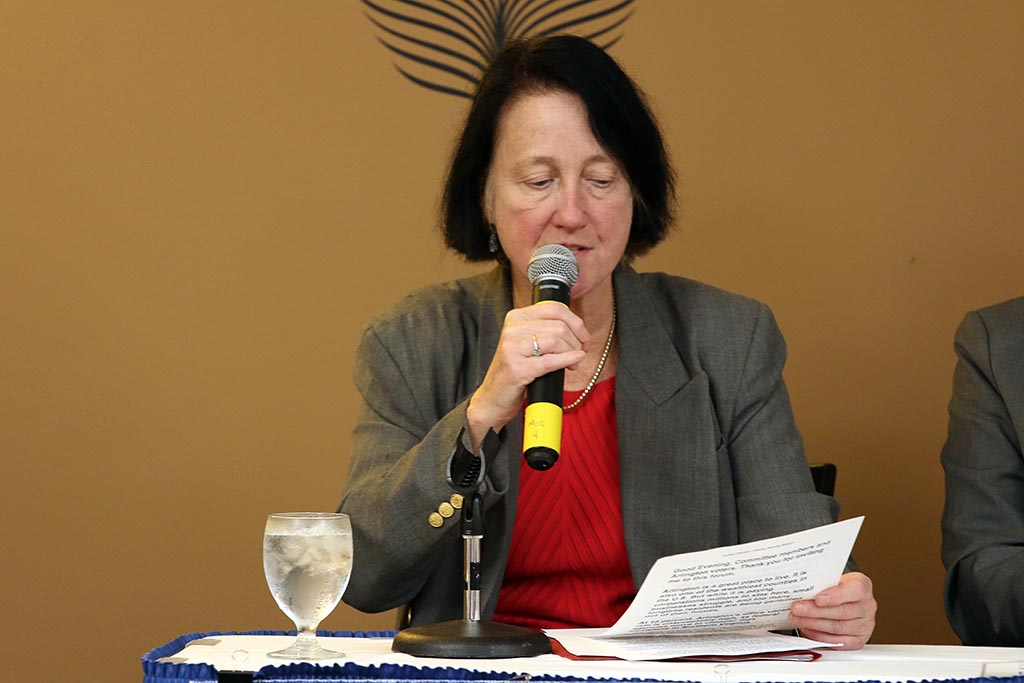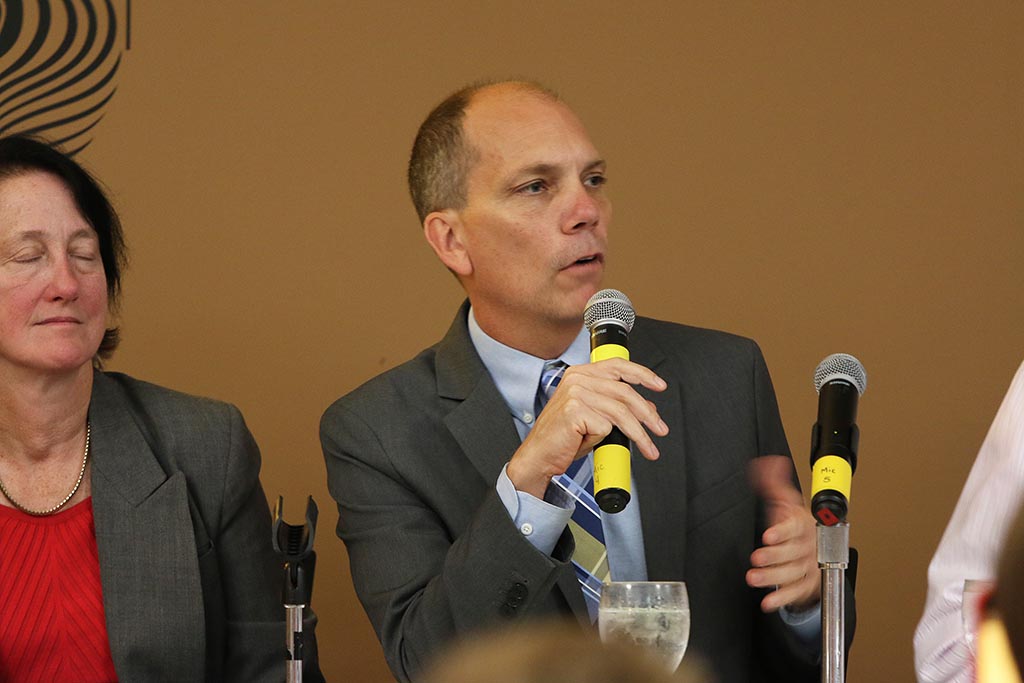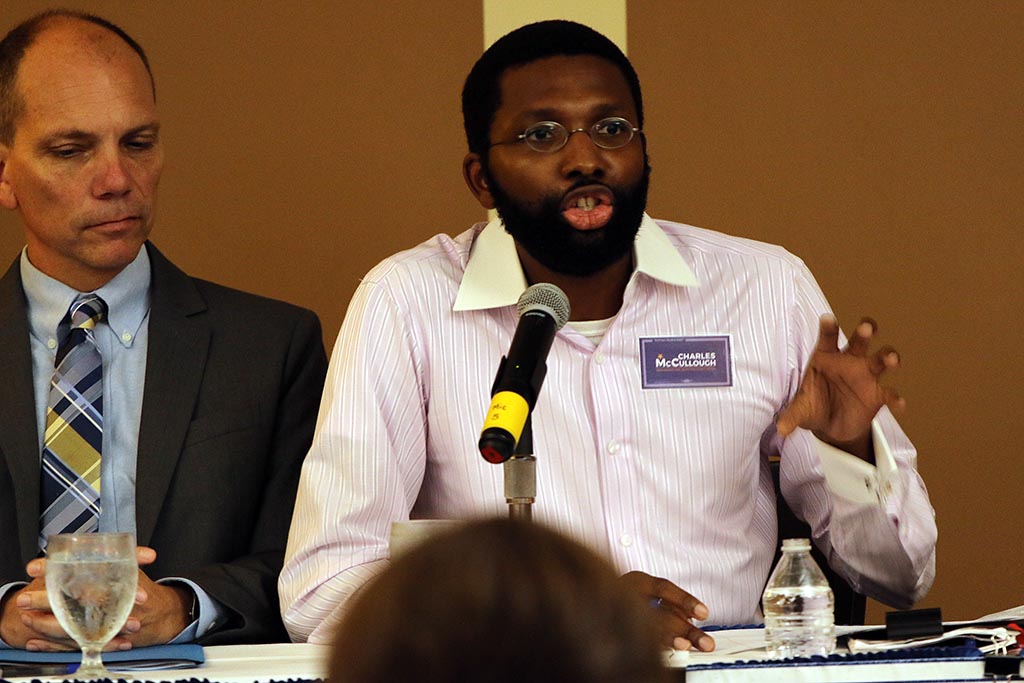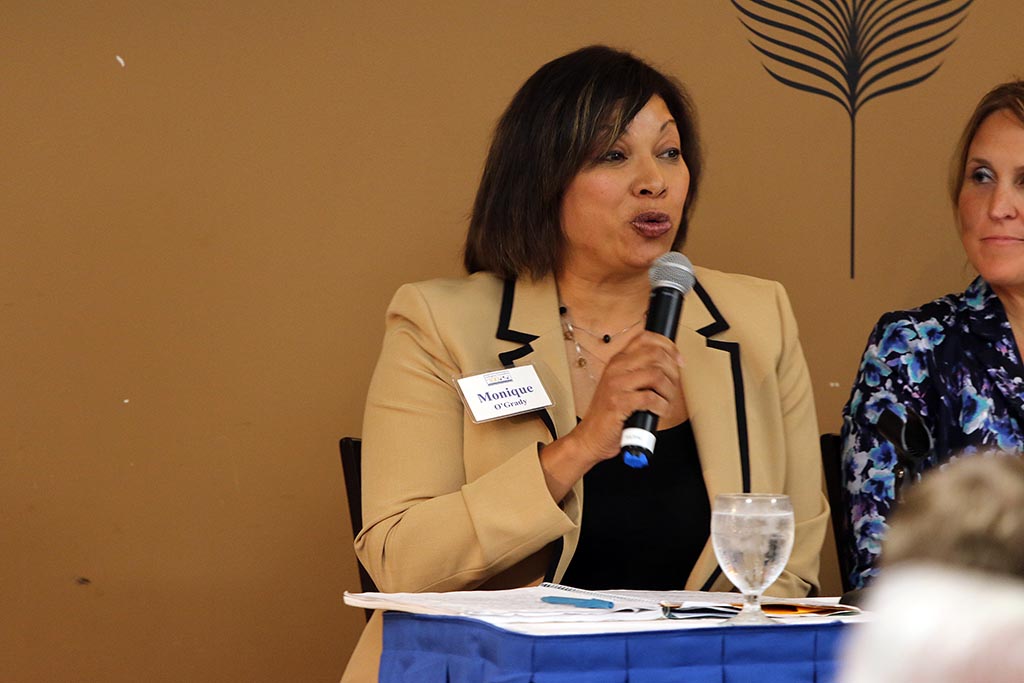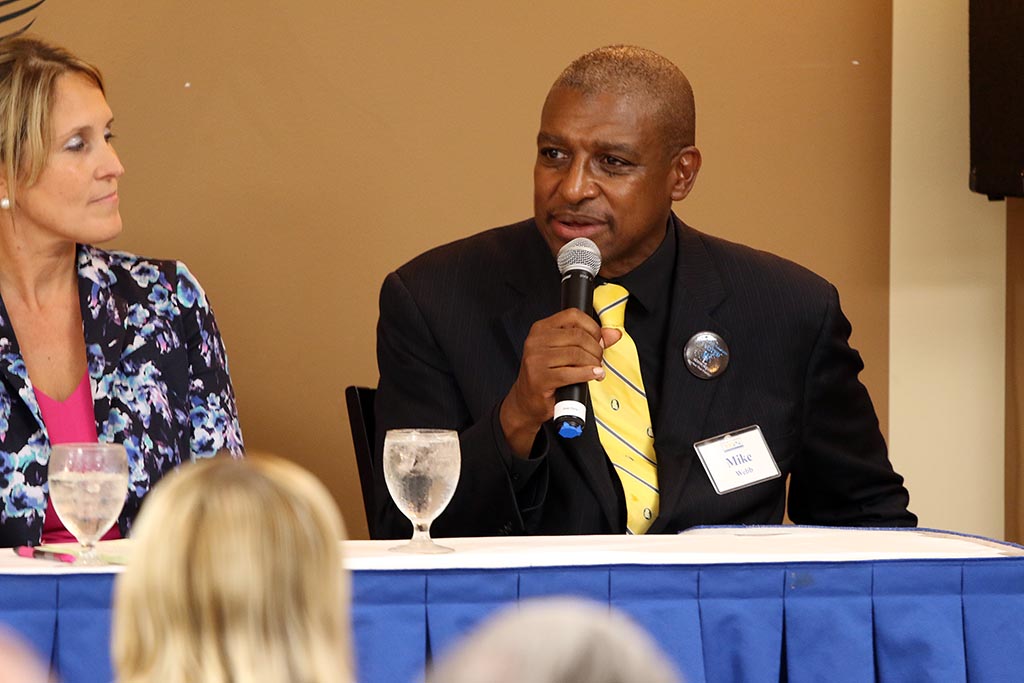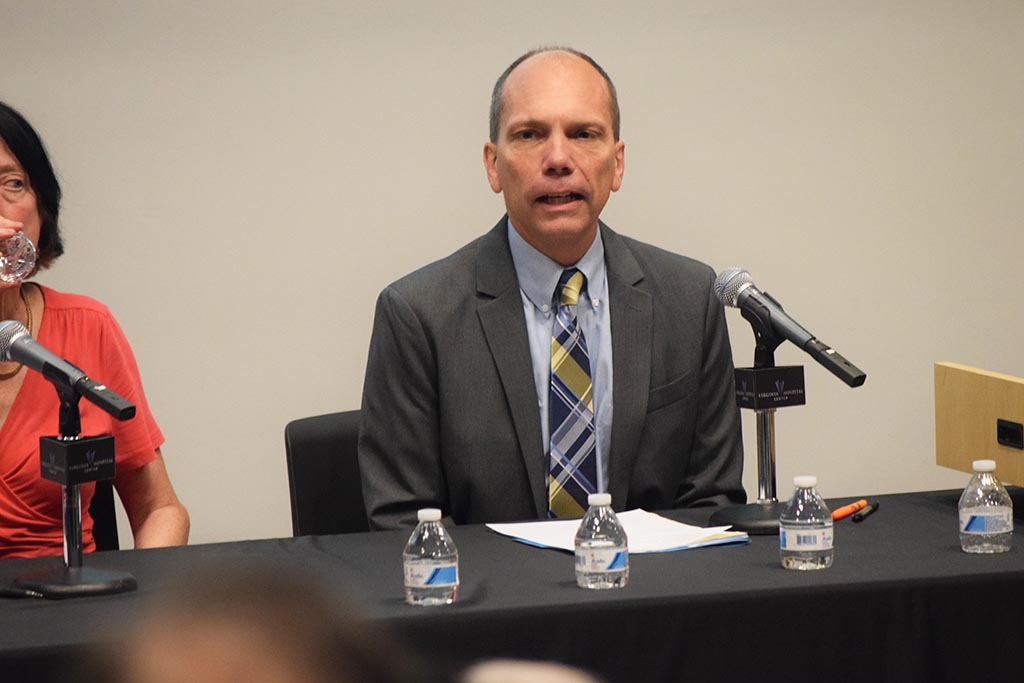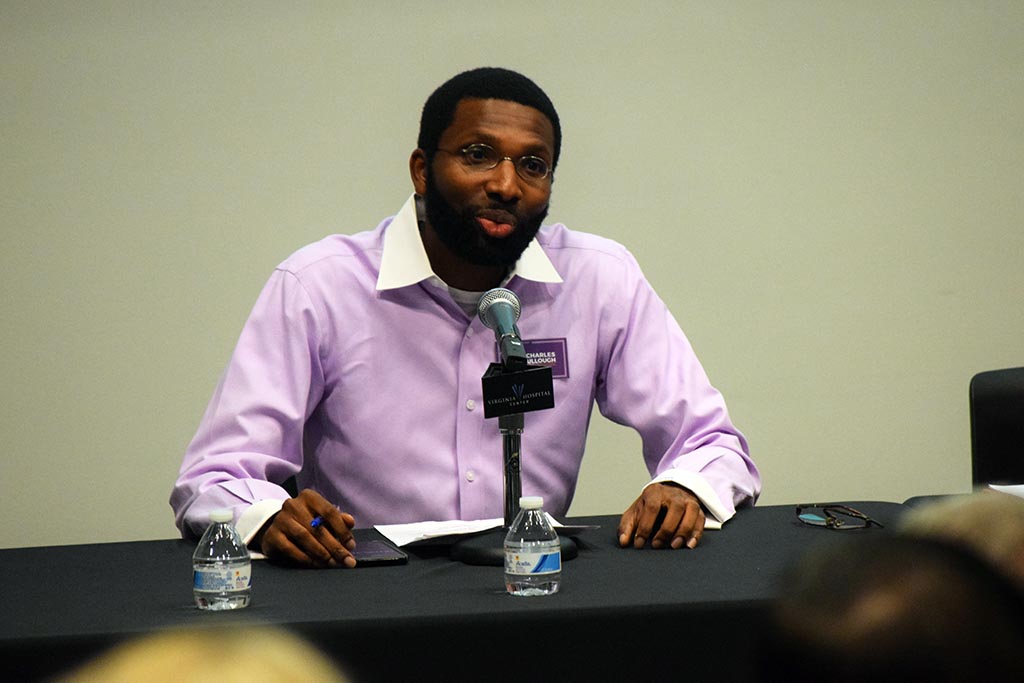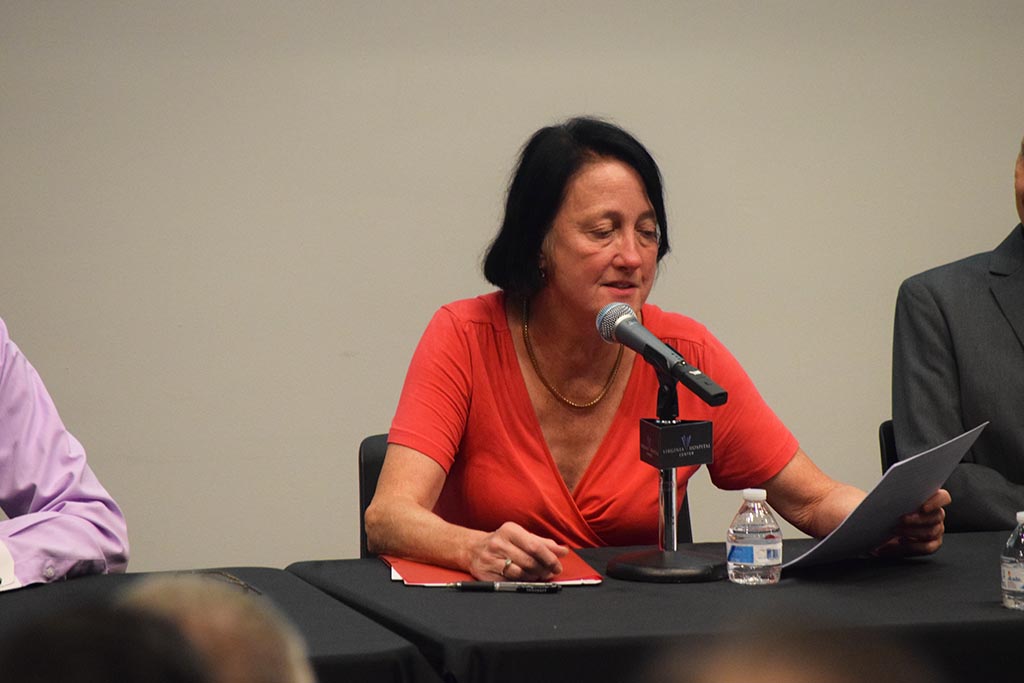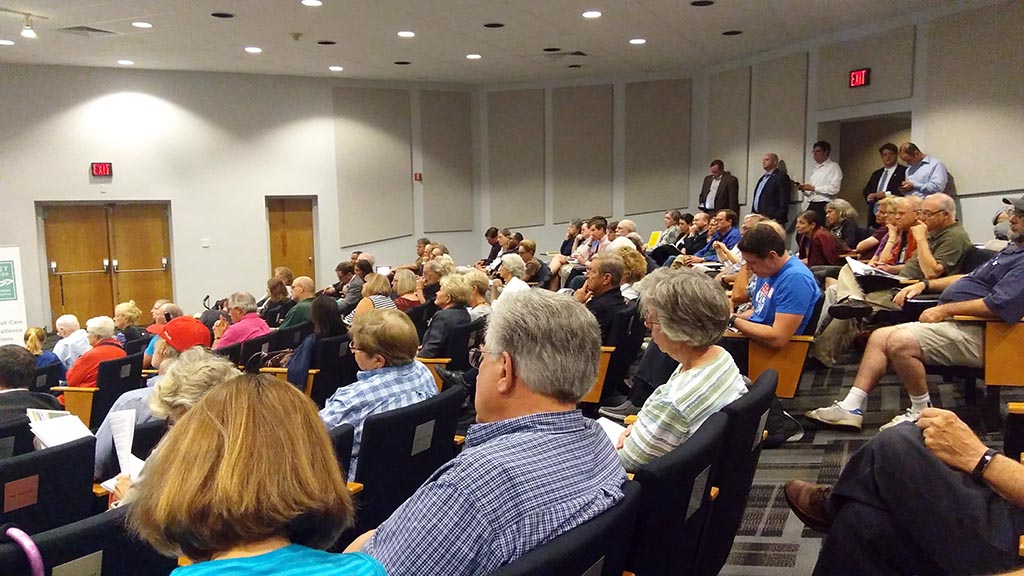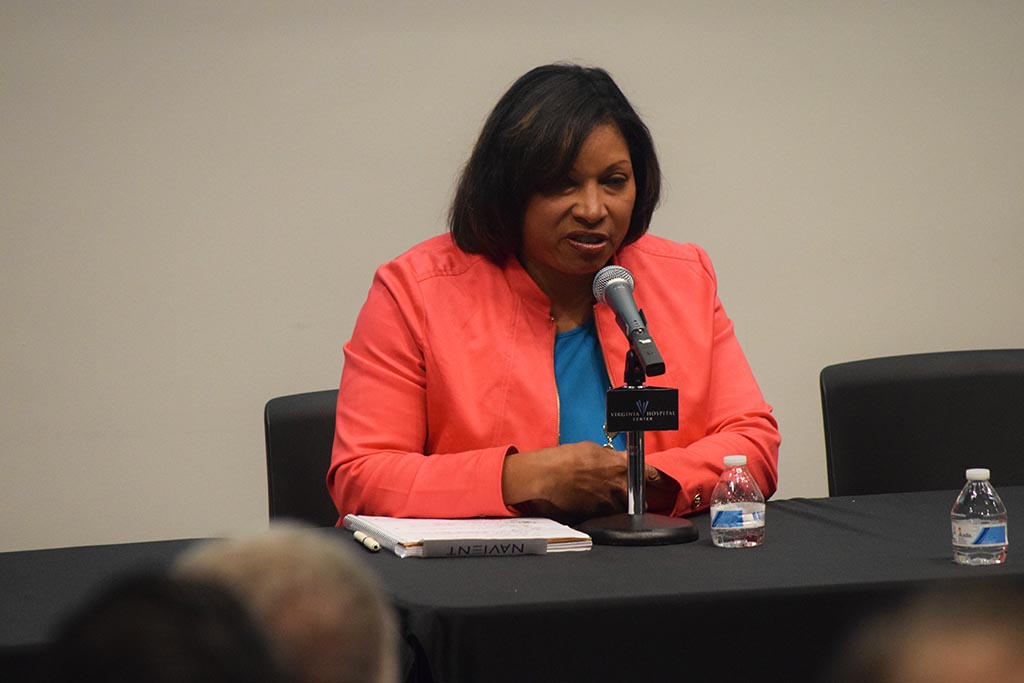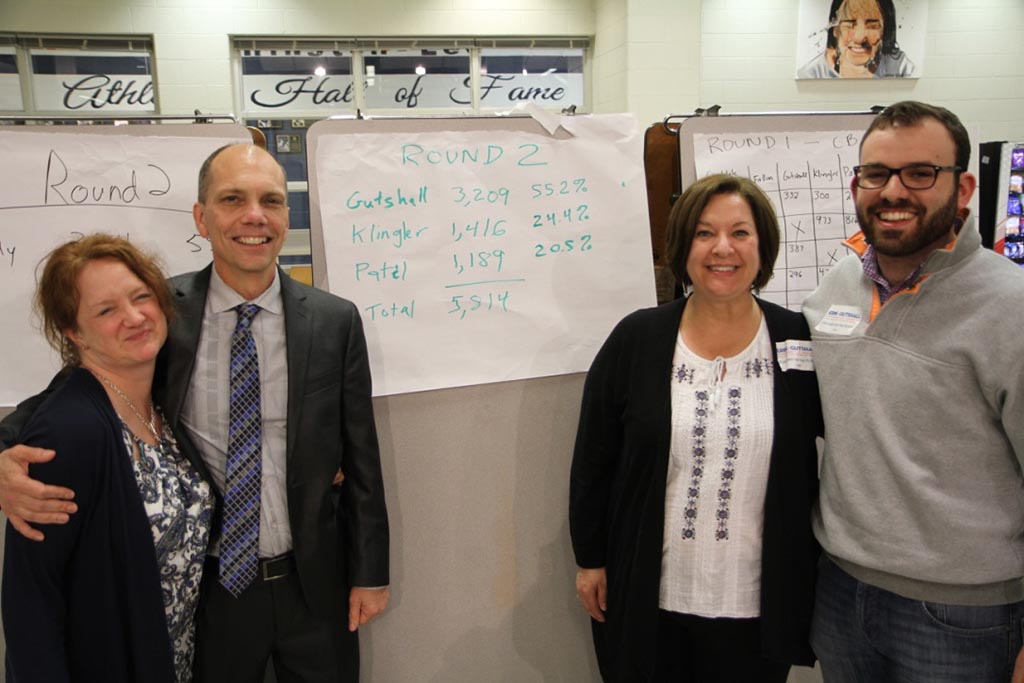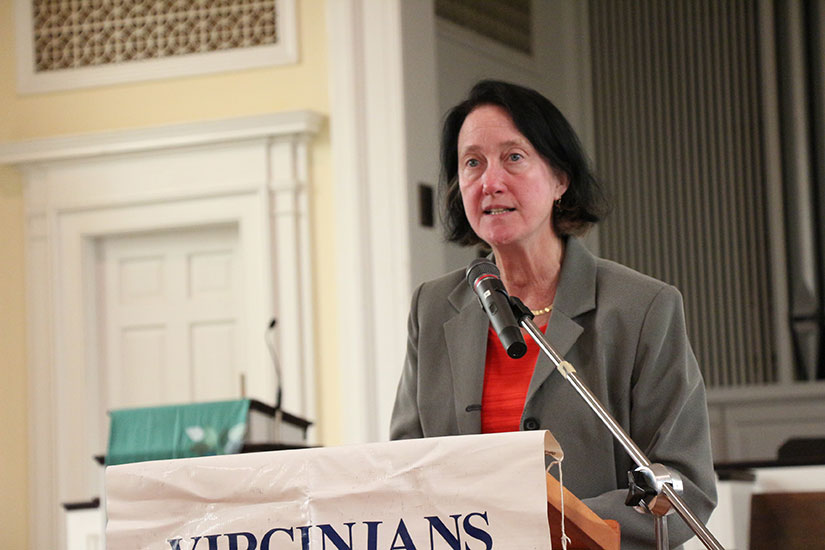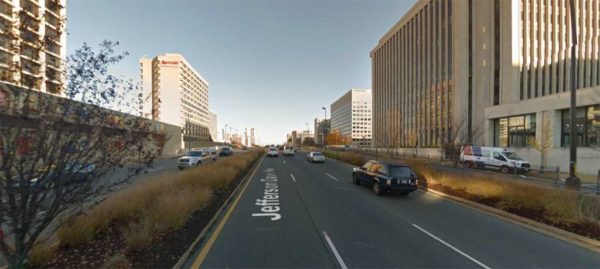Earlier this month, the candidates for Arlington County Board faced a bevy of tough questions at a forum hosted by the Arlington Committee of 100.
But after the audience went home and the microphones were turned off, that wasn’t the end of the candidates’ work.
Attendees submitted written questions to the candidates throughout the evening, but due to time constraints, they could not all be answered. So with Election Day just two weeks away, ARLnow collated the unanswered questions and emailed the three County Board candidates for their responses.
(A similar article with responses to follow-up questions for the three School Board candidates will follow in the near future.)
Candidates’ unedited responses are below.
1. What are the challenges you would tackle in the area of affordable housing?
Audrey Clement:
The biggest challenge would be to convince my fellow Board Members to:
1) amend the tax code to create Housing Conservation Districts (HCDs) where landlords would be given incentives to rehab rather than tear down existing affordable housing; and
2) loosen accessory dwelling unit (ADU) regulations to allow renting space in private homes, while limiting the impacts of such rentals on residential neighborhoods.
Erik Gutshall:
While Arlington is a great place to live, it’s undeniably getting harder and harder to put down roots here and stay rooted if a smaller home is what you need as your family shrinks. Housing affordability is a critical component of the progressive values I espouse; it is also an essential component of a strong middle class in Arlington.
As a County Board Member, I will follow a multi-point plan that includes: (1) the creation of medium density “missing middle” housing along our major commercial corridors, (2) modernization of the our zoning ordinance to enable home sharing and facilitate aging-in-place, (3) tireless support for the 2015 Affordable Housing Master Plan, and (4) continued annual funding for the Affordable Housing Investment Fund and Housing grants. I will also continue the existing, strong partnerships with non-profit housing providers as well as others in the non-profit community who provide services to Arlington residents living in affordable housing.
As detailed in my “missing middle” housing proposal, Arlington cannot subsidize our way to mass affordability, instead we must unlock the potential of the market to deliver the housing we need. The good news is that there is ample opportunity in Arlington for us to create the neighborhood-scale housing and retail areas known as “missing middle.” The missing middle framework uses market forces to diversify our housing supply and responds to the needs of residents both young and old. These modestly scaled lofts, stacked flats, co-ops, and micro units are designed to preserve neighborhood character and can fit into the edges of single-family neighborhoods and along commercial corridors, with ground floor retail and restaurants to serve adjacent homes.
Charles McCullough:
In the area of affordable housing, I would tackle these three main challenges:
Ensuring that developers pay their fair share:
- Increase the zoning fee for apartment developers who forego affordable units, as it is currently just 1/3 of the fee allowed under state law.
- Shift housing assistance funds to direct housing grants in order to support more residents earning less than 40% of the area median income.
Approaching certified and market rate housing with a multifaceted approach:
- Incentivize the development of multifamily structures designed to address senior mobility needs, as well as co-living spaces designed to meet the needs of young professionals.
- Ensure accessory dwellings become a viable option for housing while not contributing to parking and density concerns.
- Explore Housing Conservation Districts as a way to maintain larger-scale areas of market rate affordability with careful caution not to unintentionally make these areas into suburban ghettos.
Providing housing affordability programs to address the needs of low- and middle-income Arlingtonians:
- Develop new homeowner affordability programs to support community/developer partnership models like community land trusts and low-equity housing cooperatives.
- Bolster existing homeowner assistance programs that enable our teachers and first responders to live in the communities where they serve.
As a progressive, independent voice on the Arlington County Board, I have the ability to advocate for a variety of reasonable housing affordability solutions that “Put People First” instead of defaulting to developers’ demands.


